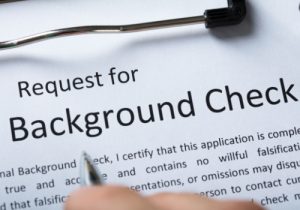Property management can be a time-consuming task that requires extensive knowledge of laws and regulations. If you are new to property management or are not comfortable handling the process yourself, hiring a property manager is the way to go.
Benefits of DIY Property Management
If you’re looking to start property management on your own, there are many benefits to doing it yourself. Firstly, it can help you save money on rental fees and rental property management fees.
Additionally, it allows you to hold back tenant deposits to cover the damage. This helps to cut down the number of tenant turnover costs. Landlords can also proactively inspect properties to catch small issues before they become costly repairs.
This helps them make informed property decisions and avoid costly issues later on. Also, DIY property management allows landlords to be a neutral party and have control over their properties. This can help them mitigate tenant disputes and maintain a clean property.
Overall, DIY property management is a great option for individuals who want a reliable income source and efficient management of rental properties; however, it is too much of a pain, and you need to know and understand a lot of technical things. Anyways, here is how you can DIY property management.
1. Establish Clear Rules and Regulations
Establish clear rules and regulations for property management to ensure successful rental income for your business. Start with a lease agreement that clearly defines rental terms and conditions, rental rate, tenant responsibilities, eviction process, etc.
Develop a tenant satisfaction plan to address issues as they arise and hold regular property inspections to check the condition of the property. Establish a tenant screening process to select tenants who fit the lease agreement and housing standards.
It is vital to document the condition of the property before and after a tenant moves in and out with a move-in checklist and move-out checklist. A good property management plan can help you manage properties more efficiently and effectively.
2. Keep Records and Track Financials
Keep accurate records of rental income and expenses to track the financial performance of your properties. This will help you make informed decisions about property investments and management strategies.
Routinely check rent rolls to ensure that tenants are paying on time and follow up with late payments. Review maintenance and repair invoices to stay on top of monthly expenses. Understand your break-even point so you can price rentals correctly and make a profit.
3. Stay Up to Date on Laws and Regulations
If you own rental property, it’s crucial to stay up-to-date on local, state, and federal regulations related to rental properties. This includes understanding the laws and regulations related to landlord responsibilities, lease agreements, security deposits, rent collection, maintenance, and tenant screening. Failing to comply with laws and regulations can result in costly fines, legal problems, and tenant disputes. Stay informed to avoid potential headaches down the road.
4. Utilize Landlord Software for Efficiency
Landlord software programs can help self-managing landlords save time and money on their rental properties by assisting with management tasks such as screening potential tenants, creating lease agreements, collecting rent, and handling other property management duties.
Landlords can use property inspection checklists to help proactively identify and address small issues before they become costly repairs. Landlord software also helps landlords track appliance replacement schedules and other maintenance tasks, which can save them time and money on upkeep.
By utilizing landlord software, self-managing landlords can better manage their properties and earn higher rental returns.
5. Find the Right Tenants
Before listing a rental property, it’s vital to ensure tenants are qualified and have a good rental history. If a potential tenant has a poor rental history, it can reflect poorly on the property. Thus, assessing potential tenants is important to ensure they have a positive rental track record.
Ideally, prospective tenants should be able to provide proof of income and employment. This can help you verify their rental income and rental history. You can also use rental agreement templates to standardize the terms between landlord and tenant. This will prevent disputes from arising. Besides, it ensures both parties clearly understand their rental obligations and rights.
6. Maintain a Professional Relationship
Establishing a cordial but professional relationship with your tenants is important for maintaining a long-term relationship. This will help you build good relationships with your tenants, allowing for efficient property management and prompt tenant relations.
It’s also vital to schedule regular property inspections to catch small issues before they turn into costly repairs. By documenting the property’s condition before and after a lease, you can recognize normal wear and tear from abnormal damage. This will help you maintain a property in the good physical condition and avoid costly repairs.
Additionally, it’s vital to avoid getting too friendly with tenants to protect your privacy and remain professional when it comes to raising rental prices or collecting rent. Instead, consider hiring a property management company to take care of repairs, maintenance, tenant relationships, admin tasks, and all those little things that can plague a landlord’s mind.
Why You Should Not DIY Property Management
It is a fascinating idea to DIY your property management but it is not recommended at all because most of the time, landlords have no knowledge about property management, and they may not be good at it. They might do more harm than good by trying to fix things that are not broken or by overlooking important maintenance tasks.
Many landlord-tenant laws vary from state to state and country to country. If you don’t know these laws, you could unintentionally break them, which would put you at risk of being sued by your tenant. A property management company will have a good understanding of all the relevant laws and regulations and will be able to comply with them on your behalf.
A property management company will also have access to a network of reliable contractors who can carry out repairs and maintenance tasks quickly and efficiently. Landlords should focus on properties that would give them a better return on investment, while property management companies have the knowledge and experience to take care of properties more efficiently.
Conclusion
In conclusion, it is not recommended that landlords DIY their property management. There are many risks and potential problems that could arise from doing so. It is better to hire a property management company to take care of your rental properties on your behalf.




